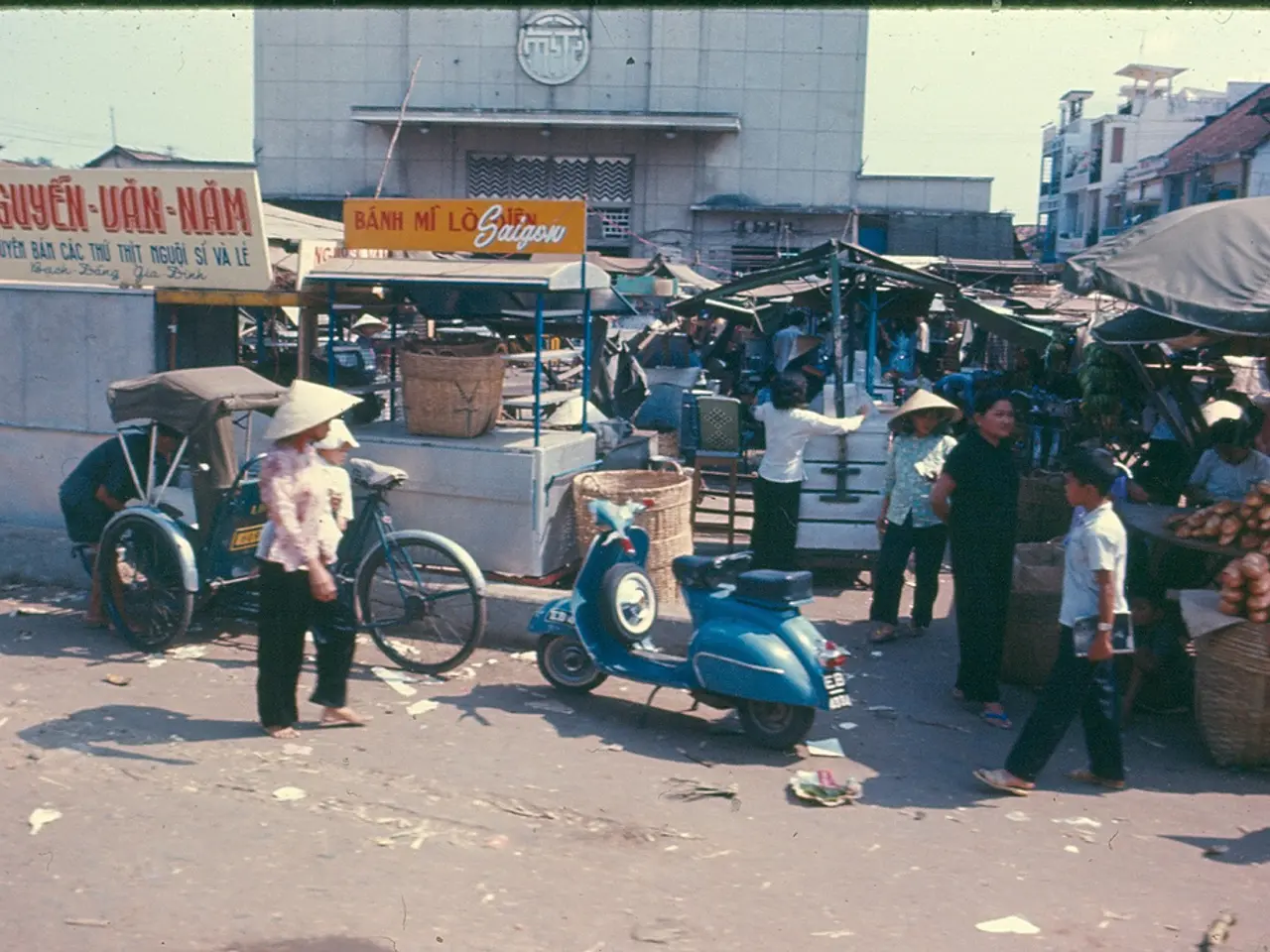Maintaining Cleanliness in Mendes Takes Community Collaboration
In the picturesque town of Menden, Germany, concerns about cleanliness have been raised, with the latest check revealing a deterioration in the cleanliness score to 3.44. Several parties and voter communities are calling for action, and here's a look at the proposed solutions.
The SPD proposes collaborating with schools, associations, and citizen groups for cleanliness actions, increasing the presence of the public order service, testing pilot projects for smart waste bins, and motivating citizens through incentive systems or sponsorships. Menden Innovativ, on the other hand, suggests a new cleanliness concept with clear responsibilities, faster response times, and more presence in the cityscape. They also plan to create low-threshold offers for citizens to contribute, such as sponsorships for beds or playgrounds, participation in local actions, or digital fault reporters.
The CDU believes that the prerequisites for a clean city are present in Menden, and they suggest more citizens' involvement in waste management, sponsorships for collection points, and increased awareness of the transfer station. Bündnis 90/Die Grünen emphasize the importance of public campaigns, environmental education, city-organized cleaning actions, cleanliness sponsorships, and the existing waste reporting service in improving Menden's cleanliness.
UWG/FW recommends introducing an environmental studies class in schools or environmental working groups as an alternative, starting environmental education from kindergarten, revitalizing the community order, and strengthening controls to prevent the city from becoming littered. The AfD proposes an ideas competition for cleanliness in the city and honoring winners through press and prizes.
Environmental education is a key approach for all parties, with city-wide programs launched in schools, community centers, and public campaigns to raise awareness about the impact of littering and the importance of maintaining cleanliness. This can foster a stronger local identity and citizen involvement, as seen in Menden’s participatory initiatives to strengthen civic pride through media contributions and local identity building.
Digital reporting options are also being considered, with the development of a user-friendly digital platform or app that allows citizens to easily report littering, illegal dumping, or unclean public spaces. This digital tool could enable quicker municipal responses and increase civic engagement by making residents active partners in cleanliness efforts.
Cleanliness sponsorships are another strategy being proposed, encouraging local businesses, organizations, or neighbourhood groups to “sponsor” certain public areas, parks, or streets, committing to regular clean-ups and maintenance. Such sponsorship can create a sense of ownership and community pride.
Consistent penalties for violations such as littering or illegal dumping are also being considered, with the aim of incentivizing compliance among residents and visitors.
Though the search results do not directly address cleanliness strategies specific to Menden, these measures align with general best practices for urban environmental management and citizen engagement reflected in contemporary place branding and participatory city governance. Integrating these approaches could strengthen both physical cleanliness and the social fabric by fostering active citizen responsibility in Menden.
Roadside strips and traffic islands in Menden are also seen as important for promoting biodiversity, according to Bündnis 90/Die Grünen.
As the political parties in Menden continue to discuss and implement their plans, the hope is that the town will soon see a turnaround in its cleanliness score, fostering a healthier and more attractive environment for its inhabitants and visitors alike.
Read also:
- CEO Efe Cakarel of film platform Mubi addresses controversy regarding new investor and Israeli military ties, establishes advisory board and fund to safeguard artists under threat.
- Energy Minister of Malawi, Ibrahim Matola, heads Malawian delegation for a knowledge exchange on BESS (Battery Energy Storage Systems), a trip held in India. This exchange is backed by the Global Energy African Partnership Program (GEAPP).
- India's efforts to lessen reliance on China for scarce earth minerals
- Milestones Achieved by Park University in Its Initial Two Decades (2000-2020)




